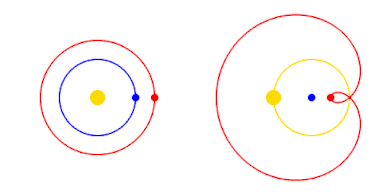Learning How to Learn
Jump to navigation
Jump to search
How do you learn something completeley new and complex rapidly? Here are hints for rapid, interdisciplinary learning for systems thinkers.
- Do not engage a topic without a clear reason for why you want to learn it. This is the preparation phase. The best practice here is to connect the learning to a specific goal. Specific goals can be aspirational, and if they are aspirational, they can provide a lot of inspiration and motivation. Thus, a significant part of your learning should be spent in the preparation phase. The preparation phase will allow you to become clear on what your goals are (so you can attain your goals rapidly), and it will also expand your index of possibilities.
- Expand your index of possibilities. Rest assured that the more you know, the more certain you should be how little you know. There is always room to grow. There are alwys unknown unknowns: things that we don't know that we don't know. Thus the curious mind should always keep alive and learning. Appreciate the Johari Window for what you don't know, and seek actively to become aware of the things that you are not aware of that you don't know - so that you can improve your life.
- The limit of learning is each of us becoming godlike in their capacity. Unlimited capacity is an inspiration to strive for, and we should not externalize the capacity for what mey be seen as magic to anyone other than ourselves.
- There is no such thing as born genius. Everyone takes practice. In the nature vs nurture argument - it is nurture that wins. Not being aware of this reality is to accept eternal widening of inequality. People are not equal. It is morally incumbent on intelligent society to craete ways for people to grow.
- Read widely, on multiple perspectives, and broadly. Understand that interdisciplinary thinking allows you to make analogies and to use one field of knowledge to help you learn more rapidly in other fields.
- Cultivate First Principles Thinking and Critical Thinking to expand your index of possibilities.
- Strive to know everything about everything as your mindset. Cultivate curiosity, exploration, and novel approaches. Cultivate integrated thinking that allows you to pick knowledge from multiple fields and apply it to relevant solutions.
- Consider what is important and eternal, and distinguish that from noise.
- Understand that people overestimate what they could do in the short term, but underestimate what they can do in the long term. Thus, strive for the long view to get farther in life.
- “Everything should be made as simple as possible, but no simpler.” - Einstein. If it's too complicated, it probably shouldn't be. When somebody says something is really complicated, they are likely not at the top of their game and not the right person to teach you rapidly. See an example of a simple model that was more correct in the Heliocentric Theory:
